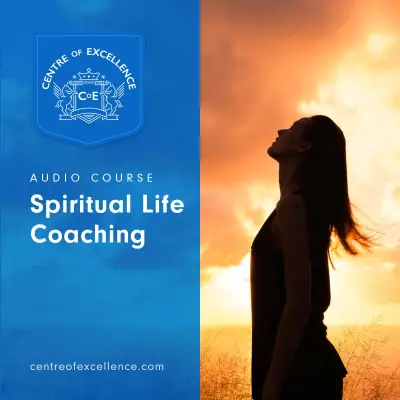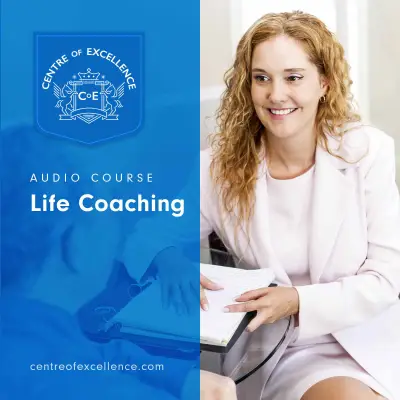Coaching sessions can be powerful spaces for clarity, motivation, and transformation. Great coaching questions can uncover hidden beliefs, reveal new perspectives, and spark real movement towards goals.
Perhaps you’re wondering how to make your coaching sessions more effective, or you’re preparing for your first coaching conversation and want to feel confident. Maybe you’re looking for questions for leadership coaching or life coaching questions that genuinely help people grow. This guide offers a clear overview of the kinds of coaching questions that truly make an impact.
Jump to:
- Why Asking the Right Coaching Questions Matters
- What Are Some Powerful Coaching Questions?
- Questions to Build Rapport in the First Coaching Session
- Goal-Oriented Questions for Clarity and Direction
- Solution-Focused Questioning for Moving Forward
- Coaching Questions to Ask for Self-Reflection and Insight
- Questions on Self-Confidence and Strengths
- Leadership Coaching Questions to Inspire and Challenge
- Growth Coaching Questions for Development and Momentum
- The 7 Coaching Questions: A Framework for Effective Conversations
- Tips for Asking Great Coaching Questions
- Study Our Life Coaching Diploma for £29
Recommended for you!
Best SellersWhy Asking the Right Coaching Questions Matters
Questions in coaching are tools for exploration. A well-timed, thoughtful question can help someone shift from feeling stuck to seeing possibilities. That’s the essence of the solution-focused approach — looking forward instead of staying bogged down in problems.
When you're using solutions-focused coaching, you help your clients see what’s working and how to do more of it. It’s about building confidence and clarity by highlighting strengths rather than focusing too long on struggles.
What Are Some Powerful Coaching Questions?
Powerful coaching questions are open-ended, thought-provoking, and focused on possibilities. They help clients reflect, discover insights, and take ownership of their goals and choices. The best coaching questions are clear and simple, but they invite deep thinking. Let’s explore some of the most impactful questions you can ask, grouped by purpose and coaching context.
1. Questions to Build Rapport in the First Coaching Session
The first session sets the tone. Good coaching questions at this stage help your client feel comfortable and establish trust. Here are some examples:
- What would you like to get out of our sessions together?
- What’s been going well for you recently?
- What made you decide to start coaching now?
- If coaching was to go really well for you, what would success look like?
These are excellent first coaching session questions because they focus on the client’s hopes and current strengths rather than problems.
2. Goal-Oriented Questions for Clarity and Direction

Whether you're using growth coaching questions or working through life goals, clear direction is essential. Try these:
- What do you want to achieve in the next three to six months?
- If you had unlimited confidence, what would you try?
- What’s something you’ve always wanted to do but haven’t yet?
- What would progress look like to you?
These leadership-focused conversations help clarify motivation and vision.
3. Solution-Focused Questioning for Moving Forward
Using a solution-focused approach means guiding clients to focus on what’s working, and how to do more of it. A classic solution-focused approach example is the “miracle question”:
- If you woke up tomorrow and the problem was gone, what would be different?
- What’s already working, even just a little bit?
- What’s helped you in the past that you could try again?
- What’s the next small step you could take?
These solutions-focused coaching questions help clients build confidence and momentum.
4. Coaching Questions to Ask for Self-Reflection and Insight
Great insight often comes from turning inward. Use these powerful questions for coaching to help your clients explore their values, beliefs, and behaviours:
- What does success mean to you personally?
- What would you do differently if you weren’t afraid of failing?
- What’s holding you back right now?
- What are you pretending not to know?
These are also strong motivational questions, encouraging deeper thinking and self-awareness.
5. Questions on Self-Confidence and Strengths

Coaching is a great space to grow belief in yourself. Try these questions on self-confidence:
- What are three things you’ve done that you’re proud of?
- What would your best friend say are your greatest strengths?
- When have you felt most confident? What was happening?
- How do you know you’re capable?
These support clients in recognising their value and reinforcing their belief in their own abilities.
6. Leadership Coaching Questions to Inspire and Challenge
In leadership coaching, the aim is often to help someone lead more effectively, build influence, and align with their values. Here are a few high-impact questions for leadership coaching:
- What kind of leader do you want to be?
- What impact do you want to have on your team?
- What’s your biggest leadership challenge right now?
- Where do you need to grow most to lead at your best?
These are good coaching questions for encouraging growth, reflection, and action.
7. Growth Coaching Questions for Development and Momentum
Clients often come to coaching to grow personally or professionally. Use these to help keep them moving forward:
- What does personal growth mean to you?
- What would stretch you outside of your comfort zone?
- What skill would make the biggest difference for you now?
- How will you hold yourself accountable for your goals?
Powerful coaching questions like these help clients take ownership of their development.
8. The 7 Coaching Questions: A Framework for Effective Conversations

You might have heard of the 7 coaching questions popularised by Michael Bungay Stanier in The Coaching Habit. These simple yet potent questions are:
- What’s on your mind?
- And what else?
- What’s the real challenge here for you?
- What do you want?
- How can I help?
- If you’re saying yes to this, what are you saying no to?
- What was most useful for you?
This set forms a strong structure for any coaching conversation, whether you’re new or experienced.
Recommended for you!
Best SellersTips for Asking Great Coaching Questions
Asking great coaching questions is a skill that takes practice and thoughtfulness. While the words you choose matter, how and when you ask them can make just as much of a difference. Here are a few tips to help you ask more effective, engaging, and supportive coaching questions.
Use open questions wherever possible
Where possible, you should always use open questions in coaching sessions. Open questions are those that can’t be answered with a simple yes or no. They usually begin with words like what, how, when, or who, and they encourage the client to reflect, explore, and express themselves more freely. They’re especially beneficial in coaching because they invite deeper thinking and help clients uncover their own insights.
Some examples include: “What’s something you’ve learned recently?” and “What’s the first step you could take towards that goal?” Avoid “why” questions where possible, as they can sometimes sound confrontational or lead to defensiveness.
Keep your language simple and clear
Good coaching questions don’t need to be clever or complex. In fact, the simpler and more direct your question, the more space it gives the client to think. Avoid jargon or overly wordy phrasing. A short, clear question is often far more powerful than a long, loaded one.
For example, “What do you want?” is more effective than “Could you elaborate on the desired outcomes you wish to explore today?”
Give the client time to think
After asking a question, pause and give the client a chance to reflect. Silence can feel uncomfortable at first, but it’s often in those quiet moments that meaningful insights emerge. Resist the urge to jump in or rephrase the question too quickly. Let the client take their time; coaching is not about speed, but depth.
Avoid leading questions
A leading question suggests an answer or pushes the client in a particular direction, even if unintentionally. For example, “Don’t you think it would be helpful to speak up more in meetings?” subtly implies what the client should do. Instead, ask something like “What do you think would help you feel more confident in meetings?” This encourages the client to come to their own conclusions, which is far more empowering.
Stay curious and non-judgemental
Approach your client’s responses with curiosity, not assumption. Your role isn’t to evaluate or advise, but to understand and explore. This means asking questions from a place of genuine interest, even if the client’s answer surprises you. Phrases like “Tell me more about that” or “What does that mean for you?” show that you’re listening and that their perspective matters.
Study Our Life Coaching Diploma for £29
If this has sparked your interest in becoming a coach or refining your skills, why not take the next step?
The Life Coaching Diploma Course at Centre of Excellence is the perfect place to start or grow your coaching journey. Discover how to support others with confidence, using a wide range of coaching tools tailored to each person. It’s currently available for the discounted price of £29.













